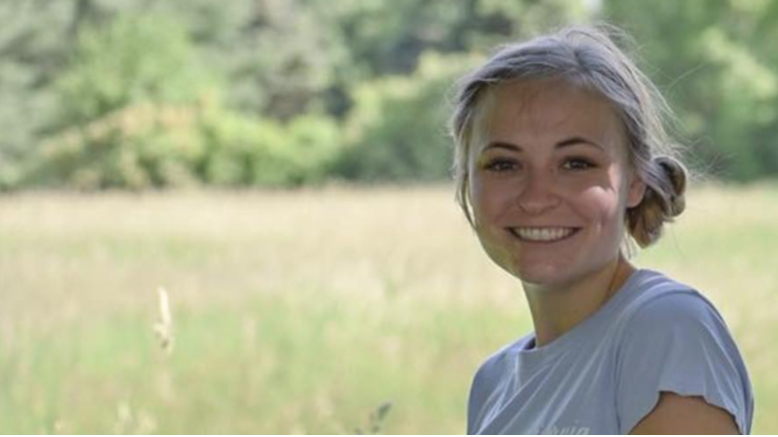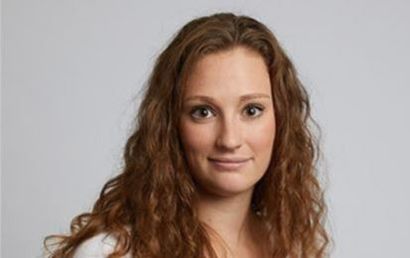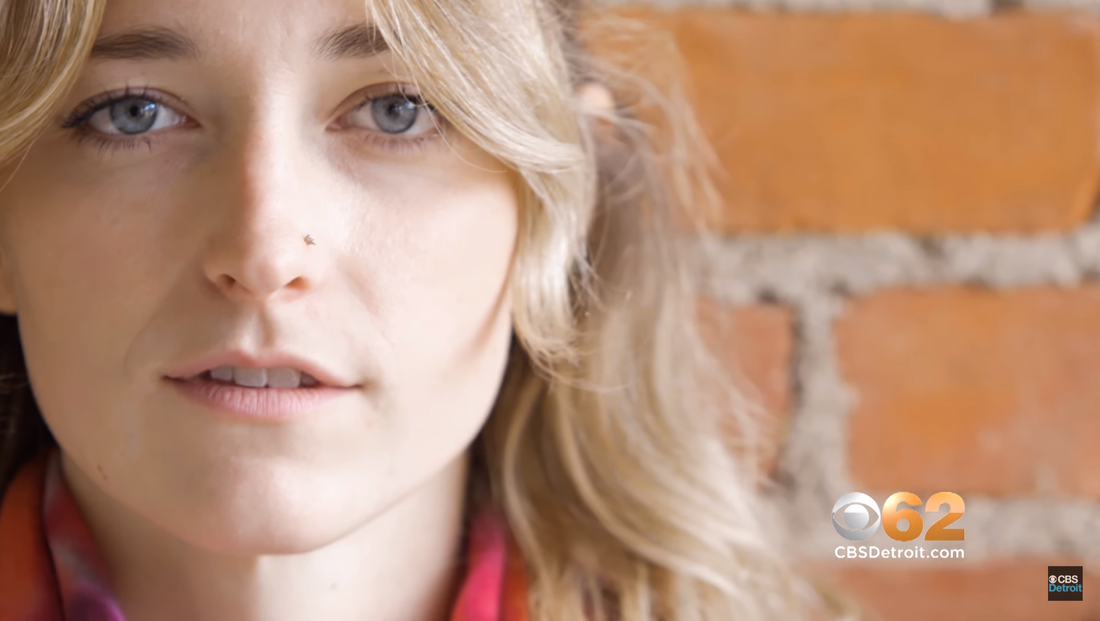|
Most survivors, myself* included, want to know that we matter. That our stories are heard. That our pain is acknowledged. That our spirit is honored. That our joy is encouraged. Most survivors, myself included, listen to other survivors, but we wait for everyone else to hear us.
There are so many amazing women I am proud to stand beside. Somehow, I find strength in our fatigue - the collective determination and a resounding "no, can't even, not gonna". Because, though we are strong, we are also wounded. For far too long, we've had to hide our wounds to care for the people who wounded us. We've had to whisper instead of yell and cry instead of punch. We've had to pull it together instead of tear it apart. As survivors, we are vulnerable and raw and strong and real. We are not cushions for your fear, doormats for your anger, or keepers of your shame. We are strong when we're alone, and stronger when we're together. But ... we are an army with too many enemies. We are soldiers without a home. We fight battles without a battlefield. We win without a victory. We don't know when it's safe to disarm. The places you say are safe - our homes and schools and churches - are the very places that should shield us. But sometimes they trap us. The people you say are our allies - our partners and colleagues and healers - should protect us. But sometimes they betray us. History teaches us about war, and it teaches us about soldiers. Wars are won at the expense of soldiers - the more soldiers we have to lose, the more battles we are able to win. Soldiers pay the price, so that others can reap rewards. Others win. Soldiers, when they survive, are traumatized. As we celebrate a win for Michigan State University (i.e. their new leader and their willingness to create a new Healing Fund), please do not forget the toll it took, and the lives that have been literally lost. Please do not forget that the soldiers are still battling. Unfortunately this war is not over. MSU's general (John Engler) was never our leader. The victory will never be shared. And the loss can never be measured. The children are not safe enough yet. And neither are we. Lauren Allswede has been working in the field of trauma since 2004, beginning as a volunteer at a crisis center and as an advocate for sexual assault survivors. She received her Master's Degree of Social Work in 2007 and worked at the MSU Sexual Assault Program from 2008-2015. Since 2015, she has been in private practice and opened North Star Wellness Center LLC in Lansing, Michigan in 2017 with other trauma specialists. ___________ * Lauren is a survivor of sexual assault, but not by Larry Nassar. Twenty-one year old Morgan Valley is a quiet young woman who is studying elementary education at Baker College in Owosso. And she's in a bit of a bind.
Back when she was 15 years old, Morgan was abused by Larry Nassar*. Because of the abuse, this normally shy and quiet girl for the first time started to experience feelings of insecurity, depression, and anxiety. She even struggled with suicidal thoughts. Thanks to a good therapist, a devoted family, and time spent with her dog Bubba, she is now on the road to healing. But the road has turned out to be a bumpy one. Initially, Morgan's therapy was covered by insurance, but new insurance coverage recently obtained by her parents requires higher co-pays. Thankfully the MSU Healing Assistance Fund covered the cost of those co-pays ... until it didn't. When the Fund was suspended in July 2018, her therapist generously agreed to let her defer the co-payments, but they have been adding up. And now that the Fund has been cancelled**, the Valleys owe a significant amount of money to the therapist. It seems that MSU's broken promise resulted in another betrayal, and this one came right in the midst of the healing process. You could say that Morgan is "lucky" because she's been able to keep up with her therapy, and she is finding it helpful. The expenses are unexpected and significant, but her therapy continues. Her parents are finding ways to juggle the expenses. But other survivors haven't been so "lucky". And it concerns Morgan to know that some of the sister survivors have had to delay or cancel their therapy work completely. Without the Fund, they're simply unable to find a way to pay for it. Morgan is grateful that she has a supportive family and a flexible therapist, but Michigan State University's broken promise has been frustrating and disappointing. Reinstatement (or replacement) of the Healing Assistance Fund would remove at least one concern and point of uncertainty for Morgan and her parents. _____ * Footnotes:
Twenty-six year old Louise Harder graduated from Oakland University about a year and a half ago and has her first "real" job; a professional salaried position. Louise was abused by Larry Nassar*, but found a way out. By starving herself, she didn't have to see him. She was sent to different doctors. Unfortunately her solution to the problem was costly; it was financially expensive and became life-threatening.
Louise has received treatment, met with dieticians, and been in therapy because she is determined to heal. It's been financially expensive with costs that had totaled $100,000 by the first of year. Thankfully her parents were savers and were able to cover most of the expenses by using her college fund and their savings. Louise said, "They've been a rock and covered about $85,000 of the costs." Louise was able to cover about $15,000 of the expenses herself. When Michigan State University announced the MSU Healing Assistance Fund in January, Louise allowed herself to become cautiously optimistic, although she wondered if it was real ... if it was really possible that MSU would be willing to help her. But fund representative Barbara Janelli assured her that the fund was real and that all expenses required to help her heal would be reimbursed. All she needed to do was submit the receipts for the services she received. For the first time, Louise didn't have to make trade-offs in terms of getting the therapy she needed vs. paying other bills associated with everyday life. Louise said that the money was great, but for her, what meant the most was someone saying, "You deserve this. We're going to give you the opportunity to heal." And Louise was starting to heal! While the costs associated with her treatment were huge while she was in crisis, they've been decreasing and are down to about $4,000-5,000 per year now. Unfortunately when the MSU Healing Assistance Fund was put on hold, Louise got nervous. She was back to worrying about how she would pay for her therapy ... while she was in the therapy. Her therapist has been able to help a bit by putting her on a sliding scale for payments, but the payments and uncertainty are back. Especially now that the fund has been cancelled. Louise is back to wondering, worrying, and making difficult decisions. While telling her story, she used the word "budgeting" a lot. It's great when a young person understands the need to make trade-offs and tough decisions. But it's sad when those trade-offs include opportunities to heal because of broken promises. _____________ More about Louise Harder FOOTNOTES * From ages 16-18
Twenty-seven year old, Alexandra Bourque is a small business owner in Detroit. As a young gymnast, she was abused by Larry Nassar*. It was a betrayal of trust. The abuse has left her facing both physical and emotional issues. Issues that she was addressing with the help of both a medical doctor and a therapist.
The MSU Healing Assistance Fund enabled Alexandra to get the mental health services she needed. And after working with a therapist for four months, she was almost starting to feel better. The therapist was helping her address the anxiety she experiences as a result of the abuse. But when the Fund was temporarly suspended last July, it felt like a rug had been pulled out from under her. Alexandra had trusted the MSU Fund would cover her therapy expenses in a timely manner, but MSU betrayed that trust. Because she couldn't access reimbursements in the short-term, Alexandra stopped seeing her therapist to avoid incurring additional debt. Then the progress she'd made started to erode, and she started to backslide. Her anxiety increased, the panic attacks returned, and she stayed in more. She was starting to feel like a hermit. Alexandra was dealing with both medical and anxiety issues as a result of the abuse, so she had a lot of bills to pay. When the Fund was suspended in July**, she hadn't been reimbursed for all of her therapy sessions to that point. The Healing Assistance Fund had initially been very valuable, but suddenly its suspension became yet another issue she had to address. Thankfully, MSU stated that the fund would be re-opened at a future date, so Alexandra knew that eventually she'd be able to pay the bills associated with her therapy earlier in the year. Unfortunately that promise would be broken too. On Dec 4, 2018, MSU announced that the fund would not be reopened. It was yet another betrayal of trust, and it meant that Alexandra would not ever be reimbursed for her therapy as promised. She's currently unable to pay off those unpaid bills. She's in debt. Sadly, a fund established "to help facilitate access to counseling and mental health services for the victims of former MSU physician Larry Nassar" has ended up adding to the victims' stress and reinforcing feelings of betrayal. Reinstating the MSU Healing Assistance Fund would enable Alexandra to be reimbursed for her outstanding therapy bills. And that would be one less battle she'll need to fight as she looks to the future. __________ FOOTNOTE: Recently, fellow sister survivor, Trinea Gonczar, connected Alexandra with SAFE, a provider of free therapy for sexual assualt survivors. Alexandra is "lucky" in that free services aren't available everywhere. Some of the other survivors live in places (like East Lansing) that don't offer similar services for free. * while 11-15 years old ** MSU stated that it had "decided to halt all further payments while [allegations of fraud] be investigated." No survivor or family member of a survivor has been associated with any of the fraudulent claims. |
StoriesSurvivors explain why they want MSU to honor its commitment to provide the Healing Assistance Fund. Archives |





